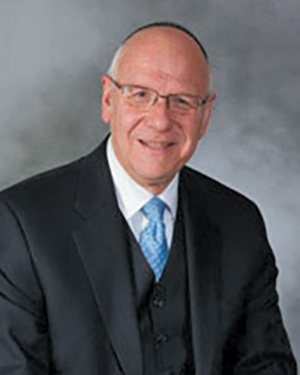
Parshat Vayeishev
The navi Amos, a simple herdsman sent by Hashem to deliver words of condemnation to the northern kingdom of Yisrael, begins his address by finding fault with the nations that surrounded Israel. He censures Aram (“Damesek”) and Philistia (“Aza”), he criticizes Phoenicia (“Tzor”) and Edom, Ammon and Moav and even includes Yehuda in his harsh words. He does this by detailing what the sins of each nation were and how Hashem could forgive the first three but would punish these states for their continued wickedness when committing the fourth trespass.
But the prophet’s actual mission was to deliver Hashem’s condemnation specifically to Israel. And he does that in this week’s haftarah. And, whereas many of the early prophets condemn the idolatry that ran rampant in the land during certain periods, Amos enumerates the sins that reflect the selfish attitude of a population that showed little regard for “the other.” Amos criticizes such a society that would “sell the righteous for money” (a clear connection to the parsha that tells of the sale of Yosef), or one that would oppress the poor and twist the judgment against the humble. In effect, the navi describes a wholly hedonistic society—not one caused simply by a pursuit of wealth and comfort but a community that allows that pursuit to cause an insensitivity and blindness to the needs of others.
This type of thinking leads individuals to divide people into castes and regard others as being “below” their class. And in doing so, it makes it easy to disregard them and ignore their very existence. The story of Yosef and his brothers that we began to reading in this parsha is not a story of jealousy and birthright alone. Nor is it only about a struggle for power and leadership. It is a study in how one can be so blinded by his own drive for…whatever it may be that he will never consider how much pain he causes—even to those closest to him, whether it be a brother or a father.
And yet, Amos does not end his message about how the corruption of society is caused by a self-centered philosophy. HaRav Moshe Lichtenstein points out how Amos goes on to explain that such an attitude also leads to a blindness to God and a failure to show the gratitude owed to Him, as Hashem says (2:10-11): “And I brought you out of Egypt and led you through the desert for 40 years…Is this not so..?” A life dedicated to self-fulfillment and not self-improvement, one whose selfish drives blinds him to the needs of others, creates a personality who eventually will be blind to God’s demands and His desires.
Avoda zara, idolatry, is not limited to describing the worship of other powers. It refers to the worship of anything besides God.
Even if that anything is yourself!
Rabbi Neil Winkler is the rabbi emeritus of the Young Israel Fort Lee and now lives in Israel.










